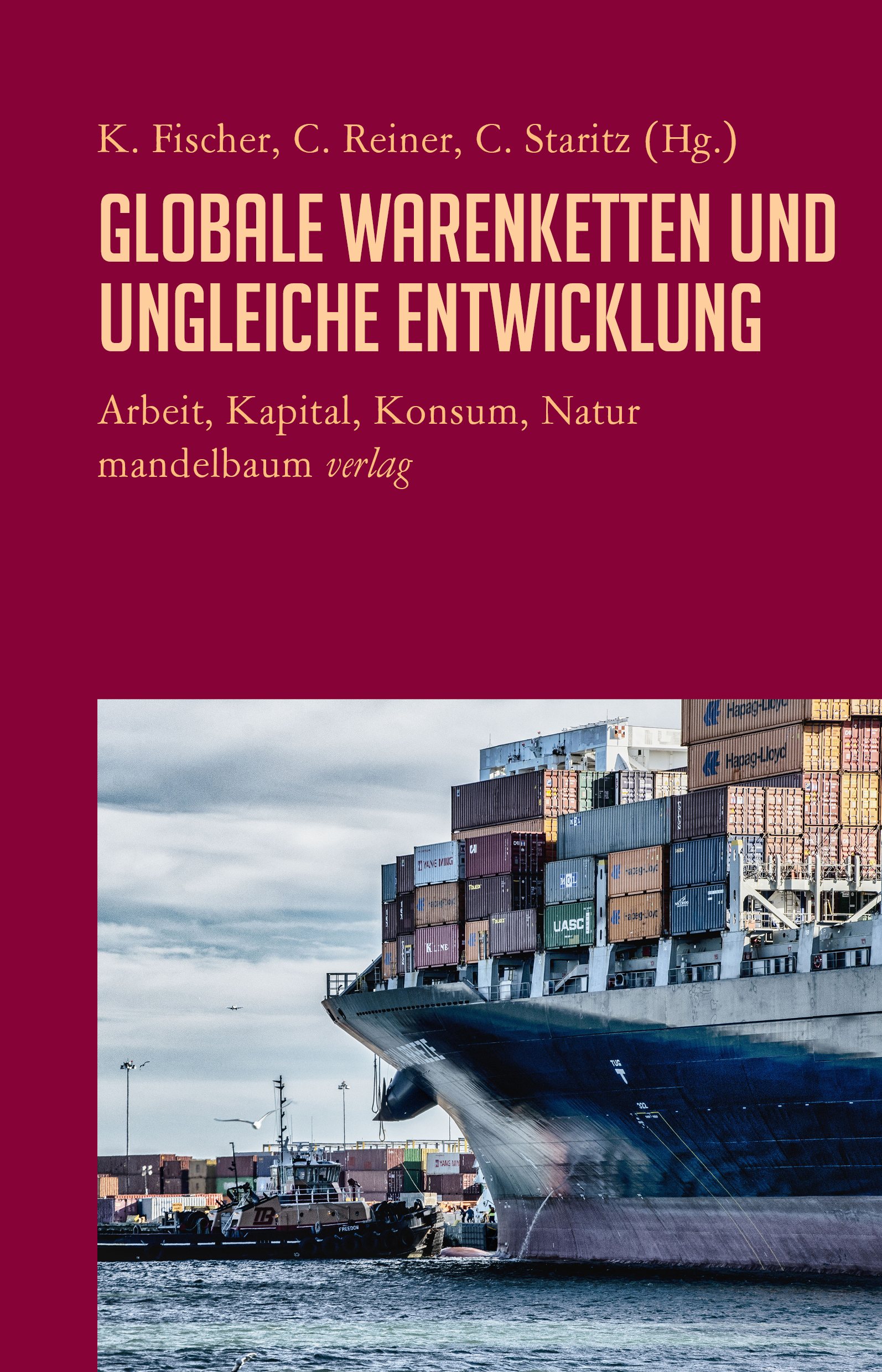Christian Reiner, senior researcher at LBS, has just published a new book on Global Value Chains (GVC). He co-edited the book together with Karin Fischer from the University of Linz and Cornelia Staritz, a development economist from the University of Vienna.
Global Value Chains are a core element of the current phase of economic development. According to the UNIDO, a GVC can be understood as “the full range of activities (design, production, marketing, distribution and support to the final consumer, etc) that are divided among multiple firms and workers across geographic spaces to bring a product from its conception to its end use and beyond.” Currently, about 50% of global trade is organized within GVC. Starting in the 1960s and 1970s, formerly vertically integrated companies from the developed world started to outsource and offshore parts of their production processes to low wage countries, especially in Asia. Since then, complex supply chains have been developed in diverse sectors such as textiles, pharmaceutical or back office services. Mundane products such as cell phones or t-shirts are produced in multiple countries and their intermediate products are transported via containers or air cargo back and forth. Multinational companies try to exploit global differences in factor conditions and allocate their functions to the places which offer the best risk adjusted return.
GVC are one of the major ways of economic integration for developing countries. Alas, the benefits of globalisation in general and of GVC in particular are not widely shared, with large parts of Africa being stuck in a subordinated, low-income equilibrium. While technology transfer from advanced multinational companies and access to markets in rich countries are positive effects of GVC, unequal power relationships between European and US lead firms and suppliers from developing countries within a GVC are likely to act as barriers against upgrading processes of firms in the Global South.
The book provides a critical analysis of GVC from multiple disciplinary perspectives. A special consideration is given to the environmental dimension of GVC. The immense transport activity associated with the organization of GVC and low environmental standards in some countries contribute to harmful effects, which we may no longer be willing to accept in world threatened by climate change.
Due to the outbreak of the Covid-19 pandemic GVC are in the limelight. Shortages in the supplies of medical equipment such as medical gloves of face masks are indicative of the vulnerability of a production system in which most of the countries rely on a small number of countries for essential products. Policy makers and managers around the world are in the process of rethinking how GVC should be organized. Securing supplies in times of emergency, digitalization and environmental considerations are likely to trigger some downsizing of some GVC and a renewed focus on regionalized production systems, for instance at the European level.



Recent Comments